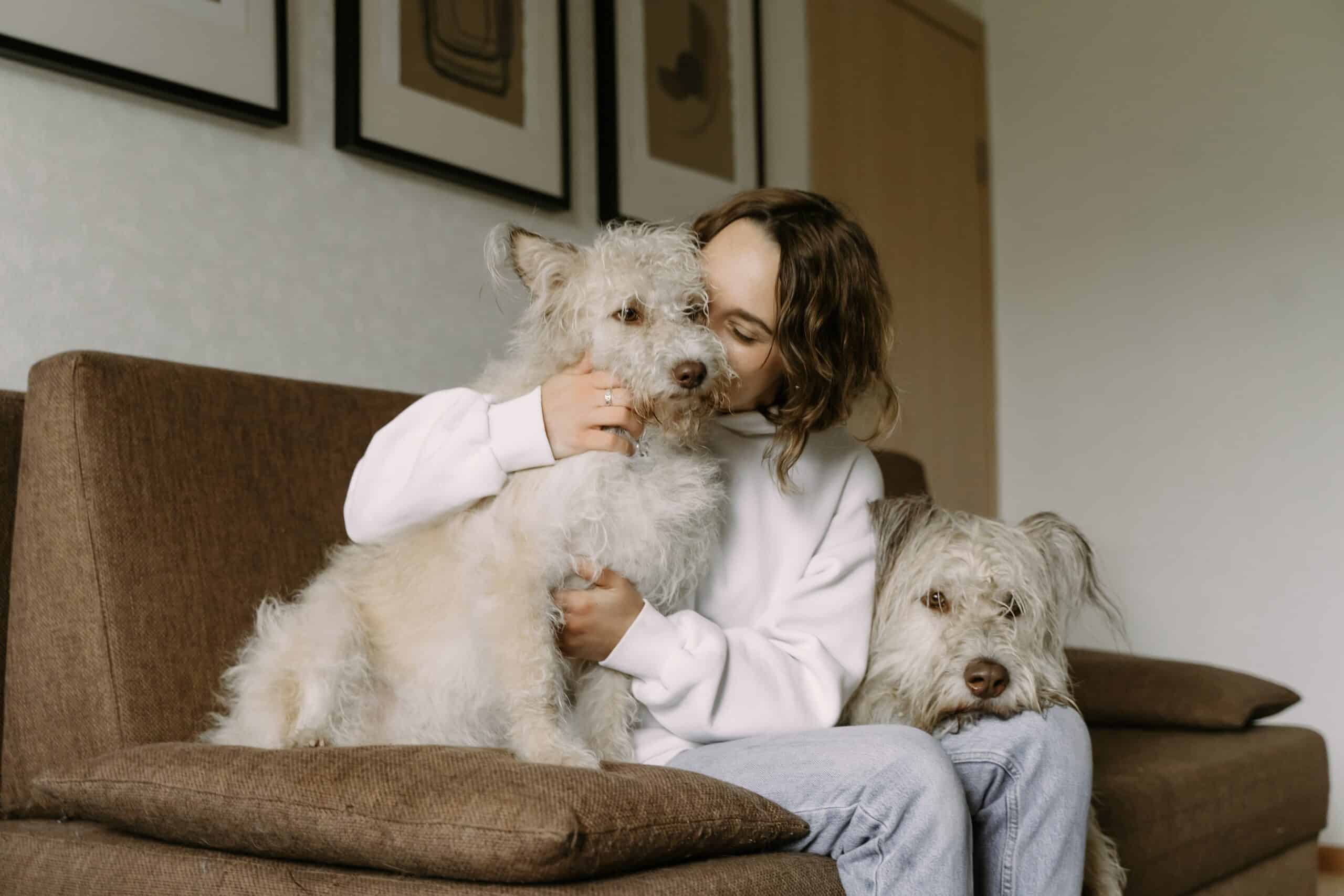
Djur
Pets play an important role in our lives
Childhood and adolescence are essential phases in one's life, from the health and well-being point of view, which influences the entire life. Social relationships are important to a child and adolescent development.
This is why all parents are trying to provide their children with all the attention they can give and the social aptitudes needed.
Pets are playing an important role in children's or adolescent's life. 68% of U.S. and 46% of British households have an animal. Moreover, epidemiological studies show that pets are more likely to be found in households with children because they bring people together and offer a lot of love.
Djur
Pets play an important role in our lives
Childhood and adolescence are essential phases in one's life, from the health and well-being point of view, which influences the entire life. Social relationships are important to a child and adolescent development.
This is why all parents are trying to provide their children with all the attention they can give and the social aptitudes needed.
Pets are playing an important role in children's or adolescent's life. 68% of U.S. and 46% of British households have an animal. Moreover, epidemiological studies show that pets are more likely to be found in households with children because they bring people together and offer a lot of love.

Companion animals promote psychological health
Companion animals promote psychological health

Companion animals (including horses, dogs, rabbits, cats, and other rodents) have the potential to promote healthy emotional youth development in many ways.
This is shown by research in Human-Animal Interactions (HAI) (the mutual and dynamic relationships between people and animals and how these interactions may affect physical and psychological health and well-being of both people and their pets.
Companion animals (including horses, dogs, rabbits, cats, and other rodents) have the potential to promote healthy emotional youth development in many ways.
This is shown by research in Human-Animal Interactions (HAI) (the mutual and dynamic relationships between people and animals and how these interactions may affect physical and psychological health and well-being of both people and their pets.
Studies on the effect that animals have on children
Studies on the effect that animals have on children
Less stress
The term "youth" refers to all age groups in this study, including infancy (0-2 years), early childhood (2-5 years), later childhood (6-12 years), and adolescence (13-18 years).
There is mounting evidence that children seek comfort, reassurance, and emotional support from their pets when they are angry, sad, or happy.
Thus, companion animals may have the potential to promote better emotional health and reduce anxiety and depression. Physiological mechanisms such as oxytocin system activation may help to explain why humans who interact with animals experience less psychological stress.
Increased self-esteem
Another key part of youth development is self-psychology (self-esteem, self-cohesion, and self-acceptance).
Developmental changes in self-esteem have a considerable influence and fluctuate conspicuously, particularly in early and pre-adolescents, with large losses in self-esteem throughout the transition to adolescence.
Existensial
Also, cognitive changes in thinking about the self and others, as well as interactions with significant persons such as parents and friends (and maybe pets), are most frequent during this age and can have an indirect effect on self-esteem.
It has been proposed that if companion animals provide self-esteem support, their greatest influence will be on youths as they approach adolescence (coinciding with increasing experiences of uncertainty), and at this time they may have a greater need for the emotional support provided by companion animals.

Less stress
The term "youth" refers to all age groups in this study, including infancy (0-2 years), early childhood (2-5 years), later childhood (6-12 years), and adolescence (13-18 years).
There is mounting evidence that children seek comfort, reassurance, and emotional support from their pets when they are angry, sad, or happy.
Thus, companion animals may have the potential to promote better emotional health and reduce anxiety and depression. Physiological mechanisms such as oxytocin system activation may help to explain why humans who interact with animals experience less psychological stress.
Increased self-esteem
Another key part of youth development is self-psychology (self-esteem, self-cohesion, and self-acceptance).
Developmental changes in self-esteem have a considerable influence and fluctuate conspicuously, particularly in early and pre-adolescents, with large losses in self-esteem throughout the transition to adolescence.
Existensial
Also, cognitive changes in thinking about the self and others, as well as interactions with significant persons such as parents and friends (and maybe pets), are most frequent during this age and can have an indirect effect on self-esteem.
It has been proposed that if companion animals provide self-esteem support, their greatest influence will be on youths as they approach adolescence (coinciding with increasing experiences of uncertainty), and at this time they may have a greater need for the emotional support provided by companion animals.
Companion animals relieve loneliness
Companion animals may relieve loneliness and boost self-esteem if they give social support and function as catalysts for human social relationships.
Pets have been shown to rival, if not outperform, humans in providing essential self-object needs such as self-cohesion, self-esteem, relaxation, calming, and acceptance. Individuals with anxiety, sadness, behavioral issues, and low educational achievement may benefit from increased self-esteem and self-worth.
However, whether a relationship between companion animals and child or teenage self-psychology may be assumed to be causative is uncertain.
Animal presence has been shown to influence the cognitive behavior in young children, therefore studying, memory and attention have been improved.
Being praised, unconditionally loved, and never punished, children are likely to form a strong bond with their pets, which gives them powerful motivation to thrive.
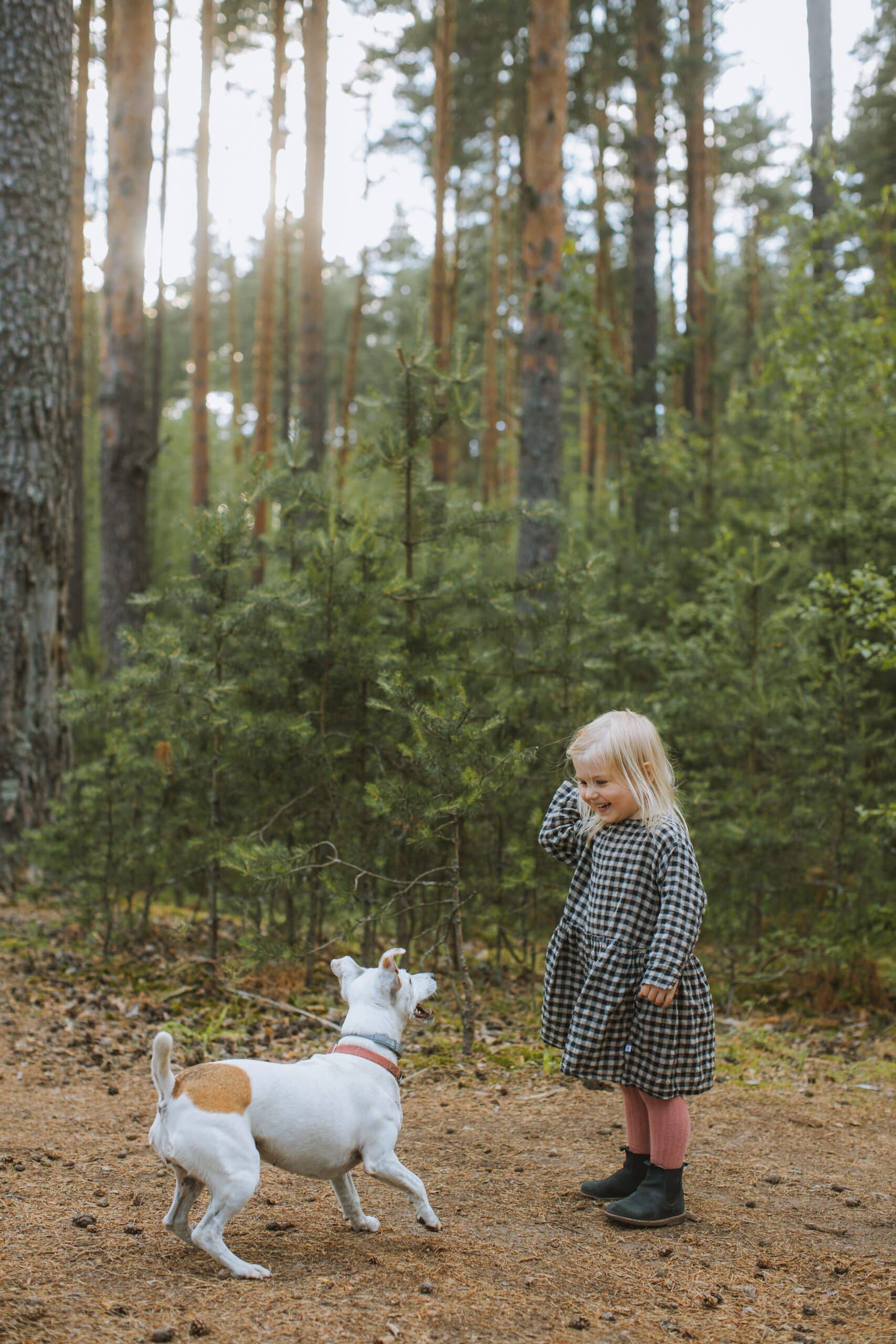
Companion animals relieve loneliness
Companion animals may relieve loneliness and boost self-esteem if they give social support and function as catalysts for human social relationships.
Pets have been shown to rival, if not outperform, humans in providing essential self-object needs such as self-cohesion, self-esteem, relaxation, calming, and acceptance. Individuals with anxiety, sadness, behavioral issues, and low educational achievement may benefit from increased self-esteem and self-worth.
However, whether a relationship between companion animals and child or teenage self-psychology may be assumed to be causative is uncertain.
Animal presence has been shown to influence the cognitive behavior in young children, therefore studying, memory and attention have been improved.
Being praised, unconditionally loved, and never punished, children are likely to form a strong bond with their pets, which gives them powerful motivation to thrive.
Animals improve cognitive functions in children
It has been speculated that animal interaction may provide opportunities to improve cognitive Executive Functions (EFs) (mental processes that form the basis for planning, attention, memory, and self-control) through stress reduction and social support which in turn can affect behavior and improve academic outcomes.
Emotional health outcomes differ between pet-owning and non-pet-owning children; therefore, a few aspects have been studied to see if pet ownership has any impact on anxiety, depression, self-esteem, loneliness, behavioral outcomes, cognitive outcomes, educational outcomes, and social development outcomes in children.
Animals improve cognitive functions in children
It has been speculated that animal interaction may provide opportunities to improve cognitive Executive Functions (EFs) (mental processes that form the basis for planning, attention, memory, and self-control) through stress reduction and social support which in turn can affect behavior and improve academic outcomes.
Emotional health outcomes differ between pet-owning and non-pet-owning children; therefore, a few aspects have been studied to see if pet ownership has any impact on anxiety, depression, self-esteem, loneliness, behavioral outcomes, cognitive outcomes, educational outcomes, and social development outcomes in children.
Pets help with school anxiety
An American research of children aged 4 to 10 years old found that having a pet helps lessen anxiety in little children about going to school, being alone in the house, being extremely timid, and being scared for no apparent reason.
At the same time, a Croatian experiment (on war-traumatized youngsters) found no difference in self-esteem between children who had housepets and those who do not.
Pets help with school anxiety
An American research of children aged 4 to 10 years old found that having a pet helps lessen anxiety in little children about going to school, being alone in the house, being extremely timid, and being scared for no apparent reason.
At the same time, a Croatian experiment (on war-traumatized youngsters) found no difference in self-esteem between children who had housepets and those who do not.
Pets help with school anxiety
An American research of children aged 4 to 10 years old found that having a pet helps lessen anxiety in little children about going to school, being alone in the house, being extremely timid, and being scared for no apparent reason.
At the same time, a Croatian experiment (on war-traumatized youngsters) found no difference in self-esteem between children who had housepets and those who do not.
Pets help with school anxiety
An American research of children aged 4 to 10 years old found that having a pet helps lessen anxiety in little children about going to school, being alone in the house, being extremely timid, and being scared for no apparent reason.
At the same time, a Croatian experiment (on war-traumatized youngsters) found no difference in self-esteem between children who had housepets and those who do not.

A study on homeless adolescents
In one study, pet-owning homeless adolescents using two Los Angeles drop-in centers reported lower signs and substantially lower scores of self-reported depressive episodes evaluated by the 10-item Centre for Epidemiological Studies Depression Scale (CES-D) (average score of 7.8) in contrast to non-owning colleagues (10.2).
Furthermore, results from an Australian school-based population study indicate that pet-owning adolescents of similar ages (13–19 years) did not have higher self-reported mental health or well-being, indicating that outcomes may differ among non-homeless youths.
From this vantage point, it is possible to extrapolate that the bond with the animal confers more psychological advantages than pet ownership alone.

A study on homeless adolescents
In one study, pet-owning homeless adolescents using two Los Angeles drop-in centers reported lower signs and substantially lower scores of self-reported depressive episodes evaluated by the 10-item Centre for Epidemiological Studies Depression Scale (CES-D) (average score of 7.8) in contrast to non-owning colleagues (10.2).
Furthermore, results from an Australian school-based population study indicate that pet-owning adolescents of similar ages (13–19 years) did not have higher self-reported mental health or well-being, indicating that outcomes may differ among non-homeless youths.
From this vantage point, it is possible to extrapolate that the bond with the animal confers more psychological advantages than pet ownership alone.
Animals reduce depression and anxiety
Prospective research indicated that kids aged 8 to 12 years old had raised their degree of confidence as a result of dog ownership.
Loneliness is very certainly a precursor to anxiety, sadness, and low self-esteem. There is some evidence that pet ownership may protect youngsters from loneliness and social isolation, thereby aiding in the prevention of depression.
Pet-owning homeless teens aged 15–23 years reported less feelings of loneliness, both statistically (UCLA Loneliness Scale score of 1.8, compared to 2.3 among non-pet owners) and subjectively, as well as fewer symptoms of depression.
Because of their therapeutic character, a high majority of these youngsters (53 percent) owned pet dogs and other companion animals, which they identified as a coping mechanism for loneliness.
Dog owners' behavioral results include higher accountability, healthier self-care choices and decision-making (for example, decreased alcohol intake), better financial choices, and enhanced autonomy in children.
According to the study, having a pet has the ability to support the development of autonomous traits such as responsibility and self-reliance.
Animals reduce depression and anxiety
Prospective research indicated that kids aged 8 to 12 years old had raised their degree of confidence as a result of dog ownership.
Loneliness is very certainly a precursor to anxiety, sadness, and low self-esteem. There is some evidence that pet ownership may protect youngsters from loneliness and social isolation, thereby aiding in the prevention of depression.
Pet-owning homeless teens aged 15–23 years reported less feelings of loneliness, both statistically (UCLA Loneliness Scale score of 1.8, compared to 2.3 among non-pet owners) and subjectively, as well as fewer symptoms of depression.
Because of their therapeutic character, a high majority of these youngsters (53 percent) owned pet dogs and other companion animals, which they identified as a coping mechanism for loneliness.
Dog owners' behavioral results include higher accountability, healthier self-care choices and decision-making (for example, decreased alcohol intake), better financial choices, and enhanced autonomy in children.
According to the study, having a pet has the ability to support the development of autonomous traits such as responsibility and self-reliance.
Pets improve cognitive processes in children
Three conducted studies have illustrated that children with a strong attachment to their pets had higher levels of validated social cognitive development scores.
Also, young children's social development has improved (the ones that are bonded with their animal companions), showing self-reliance and independent decision skills.
On the other hand, children who have a dog have better cognitive results. Self-reliance and autonomous decision-making abilities are the clearest outcomes that have improved in youngsters who have a dog over those who do not have an animal at all.

Pets improve cognitive processes in children
Three conducted studies have illustrated that children with a strong attachment to their pets had higher levels of validated social cognitive development scores.
Also, young children's social development has improved (the ones that are bonded with their animal companions), showing self-reliance and independent decision skills.
On the other hand, children who have a dog have better cognitive results. Self-reliance and autonomous decision-making abilities are the clearest outcomes that have improved in youngsters who have a dog over those who do not have an animal at all.
Pets boost cognitive exectuive skills in children
The study shows that stress reduction and social support boost cognitive executive skills in dog-owning youngsters, which benefits them academically as well.
According to research, dogs may contribute to faster growth in the four primary stages of cognitive development: the sensorimotor stage, the preoperational stage, the stage of concrete operations, and the formal operation stage.
Possible processes include pet ownership increasing the child's internal thought progression (i.e., restructuring and advancement), which changes their schema and might even increase general cognitive development.
Presenting dogs to young children helps them improve their understanding of social interactions and aids in their cognitive development.

Pets boost cognitive exectuive skills in children
The study shows that stress reduction and social support boost cognitive executive skills in dog-owning youngsters, which benefits them academically as well.
According to research, dogs may contribute to faster growth in the four primary stages of cognitive development: the sensorimotor stage, the preoperational stage, the stage of concrete operations, and the formal operation stage.
Possible processes include pet ownership increasing the child's internal thought progression (i.e., restructuring and advancement), which changes their schema and might even increase general cognitive development.
Presenting dogs to young children helps them improve their understanding of social interactions and aids in their cognitive development.
Pets improve education in children
Furthermore, animals have improved also the educational outcomes for children, as confirmed by a Swedish study.
What can you learn from your pet?!
Well, dog-owning children(around 4-5 years old) has shown improved learning and development process. They have developed their empathy and emotions and are also good at school-related tasks.
When they have been asked about this, the children said they like that the animal listens to them and pays attention only to them, which gives the children a sense of importance, satisfaction, and desire to learn more.
Another educational outcomes for children that own a dog, they are enhancing their school performance through an enriched vocabulary and learning motivation, which can be explained by the children's wish to learn more through a meaningful relationship with their animal.
Pets improve education in children
Furthermore, animals have improved also the educational outcomes for children, as confirmed by a Swedish study.
What can you learn from your pet?!
Well, dog-owning children(around 4-5 years old) has shown improved learning and development process. They have developed their empathy and emotions and are also good at school-related tasks.
When they have been asked about this, the children said they like that the animal listens to them and pays attention only to them, which gives the children a sense of importance, satisfaction, and desire to learn more.
Another educational outcomes for children that own a dog, they are enhancing their school performance through an enriched vocabulary and learning motivation, which can be explained by the children's wish to learn more through a meaningful relationship with their animal.
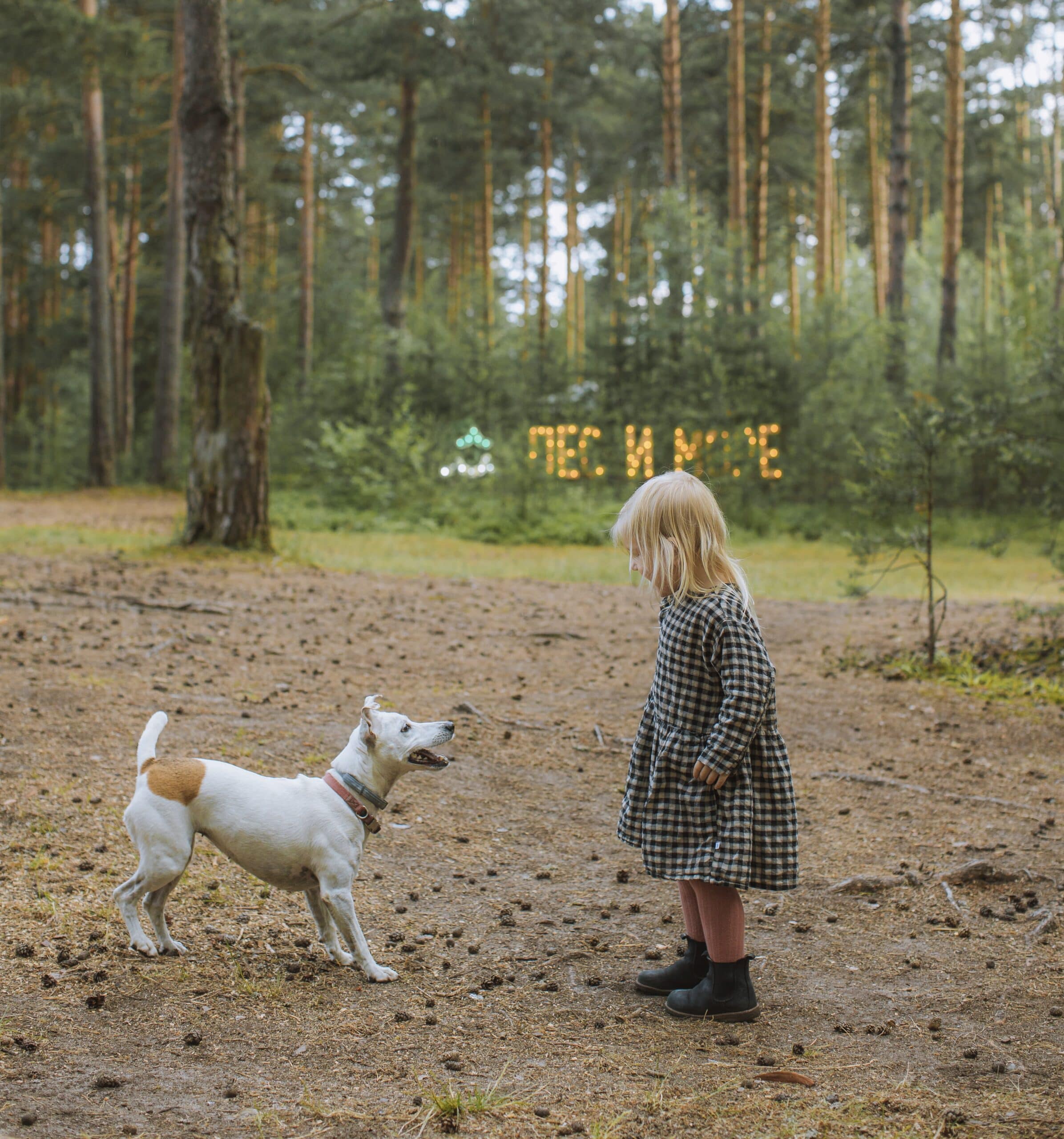
Pets improve social behavior
Pets improve social behavior
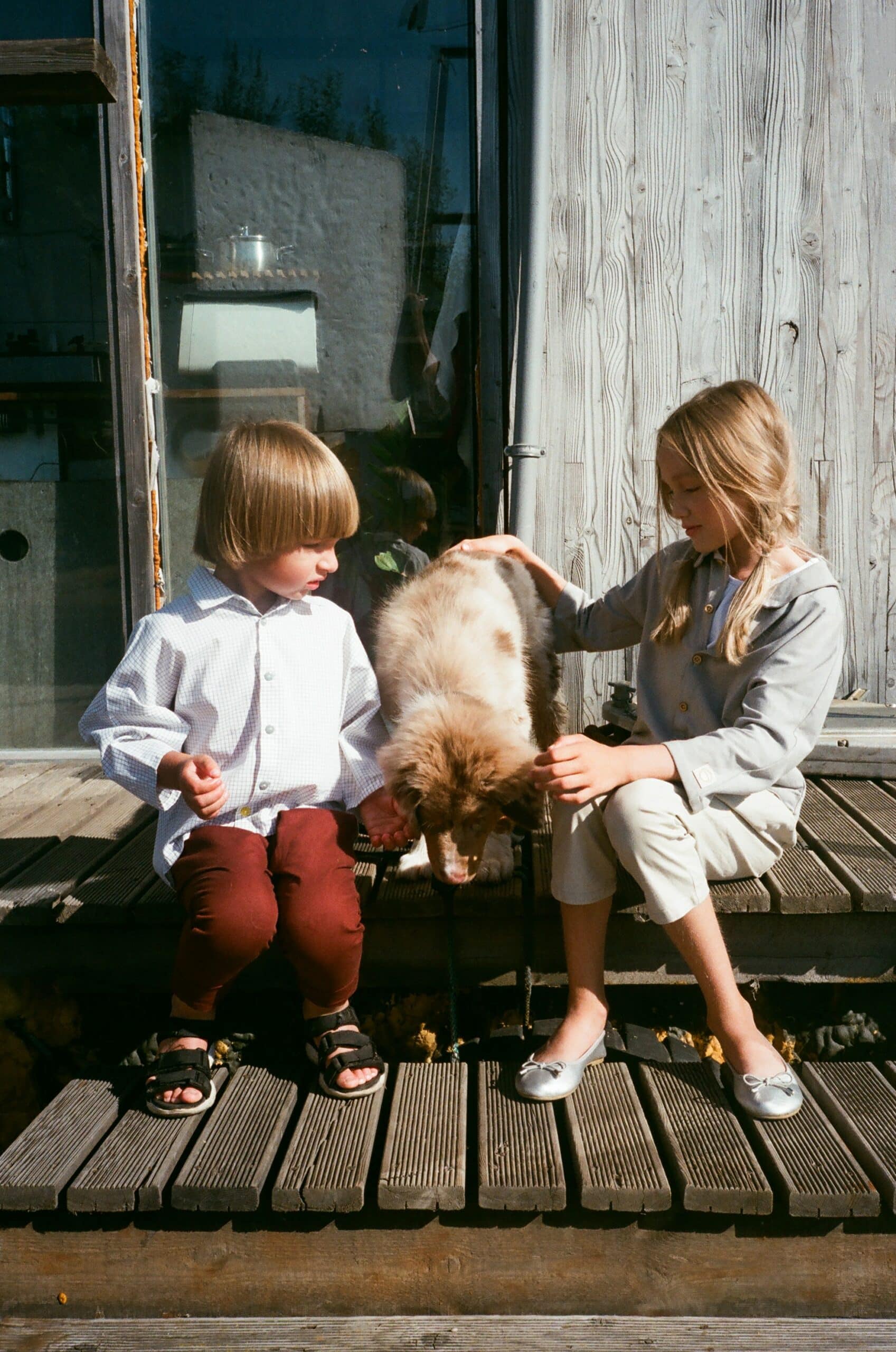
Social development outcomes are rather obvious in children that own a pet: they have improved social competencies, empathy, and a more positive attitude towards animals.
At the same time, dogs are known for being ”ice breakers” in discussions with other people. When one goes out with their dog, there comes another dog owner and involuntary almost they start to talk about their pets just because they have an obvious common interest: animals.
Just the need to go for a walk with the pet makes people feel better, maybe otherwise they wouldn't go out, which might further lead to social isolation and depression.
Social development outcomes are rather obvious in children that own a pet: they have improved social competencies, empathy, and a more positive attitude towards animals.
At the same time, dogs are known for being ”ice breakers” in discussions with other people. When one goes out with their dog, there comes another dog owner and involuntary almost they start to talk about their pets just because they have an obvious common interest: animals.
Just the need to go for a walk with the pet makes people feel better, maybe otherwise they wouldn't go out, which might further lead to social isolation and depression.
Dogs help you connect with people
Dogs help you connect with people
Equally essential are the social development benefits that dogs provide to their adult owners, particularly youngsters. Perhaps the most essential aspect of having a dog for children is the protective effect dogs offer against psychological stress.
Pets improve social play behavior, with communication being key, and there is significant evidence that pets have the capacity to support the formation of good socially interactive connections with people.
Dogs may assist young children in learning to control their emotions and form more meaningful relationships.

Equally essential are the social development benefits that dogs provide to their adult owners, particularly youngsters. Perhaps the most essential aspect of having a dog for children is the protective effect dogs offer against psychological stress.
Pets improve social play behavior, with communication being key, and there is significant evidence that pets have the capacity to support the formation of good socially interactive connections with people.
Dogs may assist young children in learning to control their emotions and form more meaningful relationships.
Animals increase your oxytocin levels
Emotional health outcomes differ between pet-owning and non-pet-owning children; therefore, a few aspects have been studied to see if pet ownership has any impact on anxiety, depression, self-esteem, loneliness, behavioral outcomes, cognitive outcomes, educational outcomes, and social development outcomes in children.
The emotional outcomes of owning a dog are quite beneficial.
Hormonal effects may also play a role; companionship and interaction with dogs can also lead to increased levels of oxytocin and reduced levels of cortisol, attenuating physiologic responses to stress and anxiety.
Also, another important fact of child-dog interactions is that they could prevent the evolution of emotional problems into full-fledged mental, emotional or behavioral disorders during adolescence or later life during adulthood.
Animals increase your oxytocin levels
Emotional health outcomes differ between pet-owning and non-pet-owning children; therefore, a few aspects have been studied to see if pet ownership has any impact on anxiety, depression, self-esteem, loneliness, behavioral outcomes, cognitive outcomes, educational outcomes, and social development outcomes in children.
The emotional outcomes of owning a dog are quite beneficial.
Hormonal effects may also play a role; companionship and interaction with dogs can also lead to increased levels of oxytocin and reduced levels of cortisol, attenuating physiologic responses to stress and anxiety.
Also, another important fact of child-dog interactions is that they could prevent the evolution of emotional problems into full-fledged mental, emotional or behavioral disorders during adolescence or later life during adulthood.
A new study published by a researcher from the University of Western Australia has found that children from households with pet dogs have improved social and emotional well-being compared to kids without a dog at home.
After accounting for other relevant factors, the researchers found that children from dog-owning households were 23 percent less likely to have difficulties with their emotions and social interactions.
At the same time, children that have pets, are more likely to be friendly with other children.
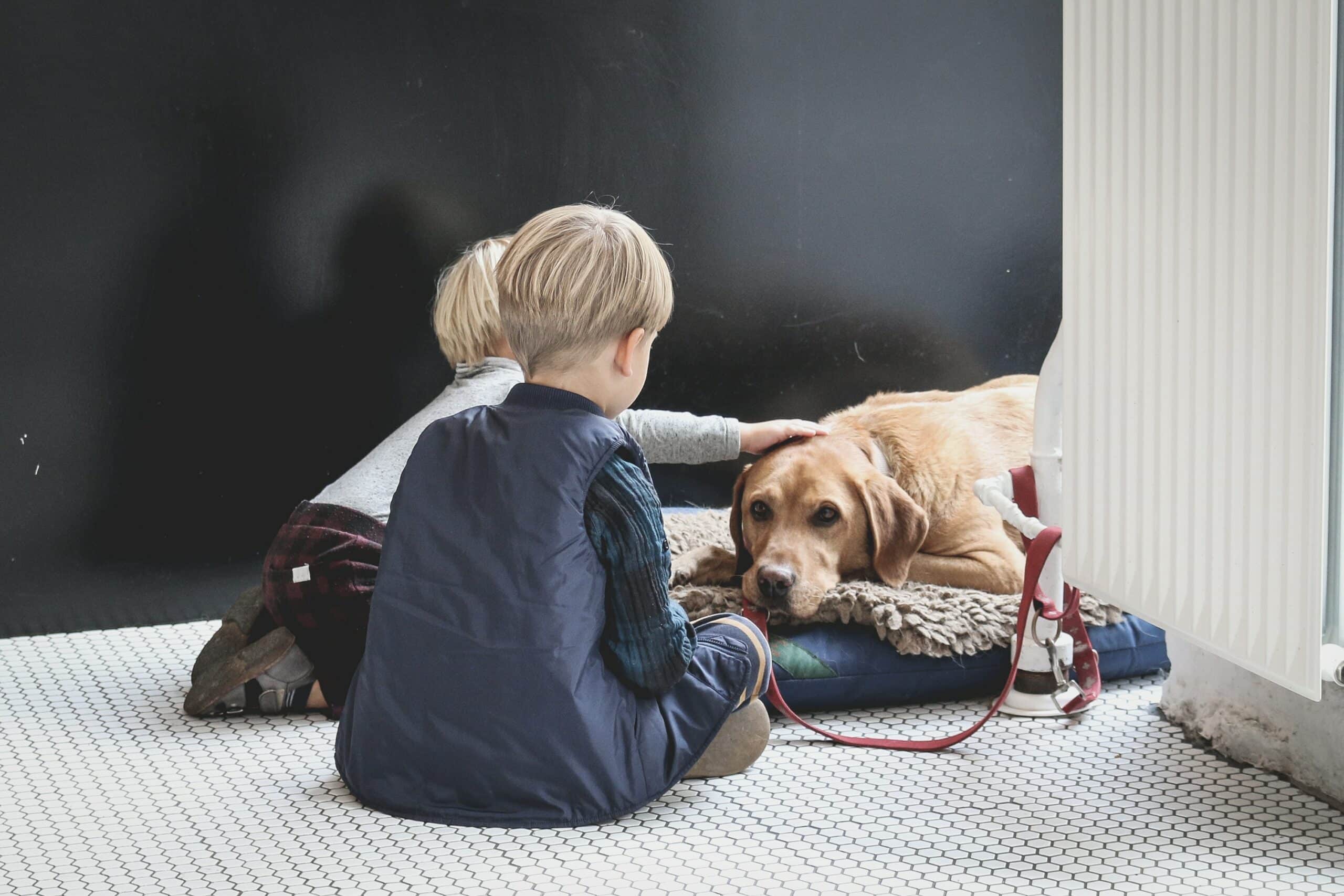
A new study published by a researcher from the University of Western Australia has found that children from households with pet dogs have improved social and emotional well-being compared to kids without a dog at home.
After accounting for other relevant factors, the researchers found that children from dog-owning households were 23 percent less likely to have difficulties with their emotions and social interactions.
At the same time, children that have pets, are more likely to be friendly with other children.
Animals bring love to the world
In summary, current research suggests that dogs and pets, in general, are improving the overall cognitive, behavioral, emotional, educational, and social development of adolescents and young children.
After all, all that one can say is that animals bring love to the world, and here it is all the research supporting the idea:)
Animals bring love to the world
In summary, current research suggests that dogs and pets, in general, are improving the overall cognitive, behavioral, emotional, educational, and social development of adolescents and young children.
After all, all that one can say is that animals bring love to the world, and here it is all the research supporting the idea:)

Until one has loved an animal, a part of one’s soul remains unawakened.
Anatole France
Until one has loved an animal, a part of one’s soul remains unawakened.
Anatole France



